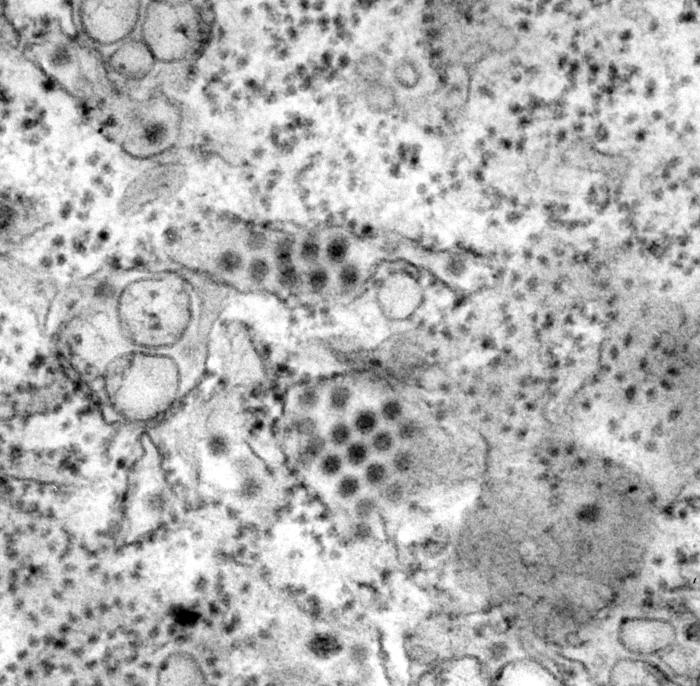Takeda Pharmaceutical Company Limited today announced that data from an 18-month interim analysis of the ongoing Phase 2 DEN-204 trial of its live, attenuated tetravalent dengue vaccine candidate, TAK-003 (also referred to as TDV), have been published in The Lancet Infectious Diseases. The results of this interim analysis, a pre-planned evaluation of data from an ongoing trial, show that TAK-003 is associated with a reduction in the incidence of dengue in children and adolescents. These data were also presented today at the American Society of Tropical Medicine and Hygiene Annual Meeting. Phase 3 data are required to confirm these findings.

The Phase 2 DEN-204 trial is ongoing and evaluating the safety and immunogenicity of TAK-003 in 1,794 children and adolescents ages 2 through 17 living in dengue-endemic areas (the Dominican Republic, Panama and the Philippines). The primary objective of the trial is to assess the vaccine-induced antibody levels to all four types of dengue virus following different vaccine schedules. Trial participants received either one primary dose of TAK-003, two primary doses of TAK-003 administered three months apart, one primary dose of TAK-003 followed by a booster dose one year later, or a placebo. Febrile surveillance and assessment of safety and immunogenicity will continue through the 48-month study period of the trial.
These interim results showed:
· In the safety set (the group of participants who received at least one dose of TAK-003 or placebo), children and adolescents who received TAK-003 had a relative risk of symptomatic dengue of 0.29 (95% CI: 0.13–0.72) compared to children and adolescents in the placebo control group. Incidence of dengue was a pre-specified secondary endpoint of the analysis.
· TAK-003 was found to be safe and well-tolerated in terms of solicited local reactions and systemic adverse events, relative to the placebo control group. This is consistent with data from previous Phase 1 and 2 studies.
· The immune response against all four dengue serotypes was durable across all vaccinated groups, with antibody levels persisting out to 18 months regardless of vaccine schedule or previous exposure to the dengue virus.
· There was limited difference in geometric mean titers (GMTs) and seropositivity rates between those who received one primary dose and those who received two primary doses three months apart, regardless of serostatus. However, importantly, in participants who were seronegative at baseline, a second dose given at Month 3 improved the tetravalent seropositivity rate at Month 6 to 86%, compared to 69% in the one-dose group. A booster dose at Month 12 resulted in a 100% tetravalent seropositivity rate at Month 13 in participants who were seronegative at baseline.
These findings support selection of a two-dose regimen, administered three months apart, for Takeda’s ongoing global pivotal Phase 3 efficacy trial. This regimen quickly achieves a high rate of response to all four dengue serotypes regardless of previous dengue exposure.
“We are seeing an acceptable safety profile and sustained antibody responses out to 18 months in this trial. These data are an important step in the development of our dengue vaccine candidate,” said Derek Wallace, M.B.B.S., Global Dengue Program Lead at Takeda. “The reduced incidence of dengue in children and adolescents receiving TAK-003 is encouraging, however data from our ongoing Phase 3 efficacy trial, TIDES, are required to confirm these findings.”
TAK-003 is currently under evaluation in the Tetravalent Immunization against Dengue Efficacy Study (TIDES), a large-scale Phase 3 efficacy trial being conducted in eight dengue-endemic countries. TIDES will build on DEN-204 and other previous studies in continuing to assess the tolerability, safety and immunogenicity of the vaccine against all four dengue serotypes in multiple age groups and to determine whether the vaccine helps prevent symptomatic dengue. Data from TIDES will be available in late 2018.
Related:
- Pandemic vs epidemic: What’s the difference and why does it matter?
- Vaccine news: ‘Significant discovery’ in efforts to develop vaccine against Zika, dengue and Hepatitis C viruses
- Dengue: Changes in temperature affect the extrinsic incubation period of the virus
- Dengue: Air travel linked to spread in Asia

